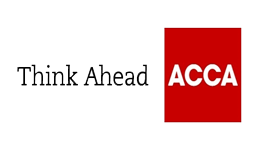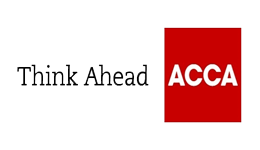We deal with self-assessment tax returns but we also do much more than that. We actively make sure you are doing all you can to take the advantage of the tax relief/allowance available to reduce your tax bills, stay within the law at the same time keeping the whole process as stress free as possible.
Personal Taxation
For sole traders and partnerships, year-end accounts will form the basis of the business owners’ self-assessment tax return. For a partnership, the year-end accounts will also state the balance on each partner’s current account.
We’ll always be keeping an eye on your tax position, considering particularly Income Tax, Capital Gains Tax and Inheritance Tax. Completing your tax return is just a part of it, as we offer an annual review to make sure you are paying correct taxes, arrange your affairs to be tax efficient and advise on matters that may come up in the future.
We can also advise you on specialist areas of taxation such as landlord tax or becoming self-employed.
Business Taxation For owner-managed limited companies, the limited company accounts will show details of the directors’ salaries and the dividends paid to shareholders, which will need to tally with their self-assessment tax return.
Tax can be a minefield for business owners what with Corporation Tax, VAT, CIS, PAYE and National Insurance. So it is important that you have the help you need to ensure you comply with the relevant laws and at the same time reduce your tax bill as far as possible. This is where we can really help, as we regularly review your tax position and check that the tax implications of plans for the future are considered early on in the planning process.
We also provide a Tax Enquiry fee protection enquiry service which is there to help you should HMRC decide to look into your tax affairs.
Limited companies, partnerships and sole traders are free to pick whatever year end they like.
Many businesses owners will pick a calendar year or the tax year (either 31st March or 5th April). Picking the tax year will make your tax liability based on the latest finalised accounts and therefore as current as possible. Consequently, some business owners prefer to have a tax year end, because they have a better feel of what their tax liability might be. Opting for the 31st of March or 5th April will also avoid any complicated overlap relief calculations for sole traders or partners.
Alternatively, you might choose a year end that suits your business – a quiet time of the year when you can have the time to get everything together: count up stock, summarise your prepayments, unbilled work, etc.
If you have any other business interests, think about making the year ends all the same. This means the deadlines are easier to remember because they will be similar but does also mean they all come at once!
You should look to prepare sole traders accounts and partnership accounts well ahead of the tax return deadline of 31st January. Companies typically have nine months from their yearend to complete their accounts, but it’s always best to check on Companies House’s website what the company accounts filing deadline is.
Give yourself as much time to prepare the accounts as possible. Rushing can lead to errors and there may be receipts or bank statements you need to find. It also allows you to consider if you’ve claimed everything you’re entitled to and whether there are any tax planning opportunities available.
Tax Enquiry Fee Protection Service
For many years, the risks of an in-depth tax enquiry by HM Revenue & Customs (HMRC) have continued to increase. HMRC Officers are also now using new, wider powers to visit premises and inspect financial records. As a result, tax enquiries are becoming more complex and the professional costs of defence are rising. So, we think it’s important that our customers consider taking out Tax Enquiry Fee Protection. We are able to represent our customers under enquiry by HMRC. If you are selected for tax liabilities. Even so, answering all HMRC’s questions takes time and the enquiry could drag on for many months. It can cost a substantial amount to represent you, whatever the result.
To provide peace of mind, we have introduced a tax enquiry Fee Protection Service. The Service is backed by an insurance policy under which we can claim the costs of defending clients in tax enquires.
Why do I need the Tax Enquiry Fee Protection service? vAnyone that pays tax can come under enquiry. v HMRC are targeted to increase tax enquiry. v HMRC enquiry activity is at record levels. v Many enquiries are selected completely at random.
What does the service cover? v Our fees for defending you should you receive an enquiry from HMRC.v Fees of up to £20,000 are covered. v Includes costs for HMRC visits as written enquiries.
To find out more, or to book a FREE initial meeting, please just get in touch today!
Corporate Tax Compliance and Planning
The first thing you must do is register your company with HM Revenue & Customs (HMRS), using its official forms so it knows you are liable for corporation tax.
If your company is liable for corporation tax, you must calculate how much profit your company makes for each accounting period and how much corporation tax is payable on those profits.
This information must be reported to HMRC on a corporation tax return form and accounts tax computations must be submitted to HMRC in support of the return.
There are strict penalties for filing late returns and interest is charged on tax paid late, so it is important that the deadlines, which are determined by your company’s annual accounting date, are adhered to.
Our accountants can assist with the preparation of company accounts, company tax returns and tax computations and will also be able to provide advice on any tax planning areas that may benefit you and your company.
As a business tax payer, you will be only too aware that corporate tax self-assessment adds an additional burden to your responsibility. Coupled with increased HM Revenue & Customs enquiry activity, you will also know that the consequences of inaccurate reporting can be serious – but, like any other taxpayer, you do not want to pay any more tax than necessary.
Our corporation tax compliance services cover: v Preparation of the company’s Tax and Capital Allowances computations based on your annual accounts.v Preparation and submission of the Company’s Corporation Tax Return form CT600. v Calculation the company’s Corporation Tax liability for the year and advising you of the due date for payment. v Dealing with all routine enquiries and liaison with the Inland Revenue in connection with the return.
By working with us, we can help your company to maximise the benefits of tax incentives and benefits through advance tax planning. These opportunities include: v Purchasing commercial property. v Employee share schemes. v Company cars. v Non-trading investments.v Tax incentives to outside investors.
To find out more, or to book a FREE initial meeting, please just get in touch today!
Trusts, Estate Planning, IHT
When you set up a trust, you are able to give away assets while still retaining some control over them. You can structure your trust to provide income to different beneficiaries, with the capital eventually going to other people. Trusts are particularly useful in estate and inheritance tax planning, for example if you are and your partner are not married or in a civil partnership or where arrangements for passing on your estate wealth are made more complex by previous marriages where stepchildren are involved.
If you want to pass on the value of your estate to your family after your death, you will need to act to reduce your inheritance tax liabilities. There are ways we can help you to achieving your IHT planning for example; gifts between spouses and civil partners are usually exempt, using you and/or your spouse or civil partner’s tax-free allowance, lifetime gifts if you survive seven years from the date they are made. You can also pass a family home to direct descendants free from IHT and if your business is privately owned, shares held for at least two years will generally qualify for 100% relief from IHT. There are many other ways of reducing IHT depending on your personal circumstances. You should take care when writing your will as the wording can significantly affect your IHT liability. Our highly specialised Tax Advisors are there waiting to help you at affordable fee.
To find out more, or to book a FREE initial meeting, please just get in touch today!




